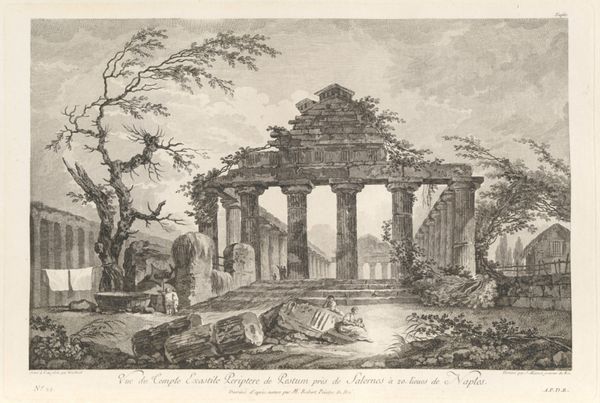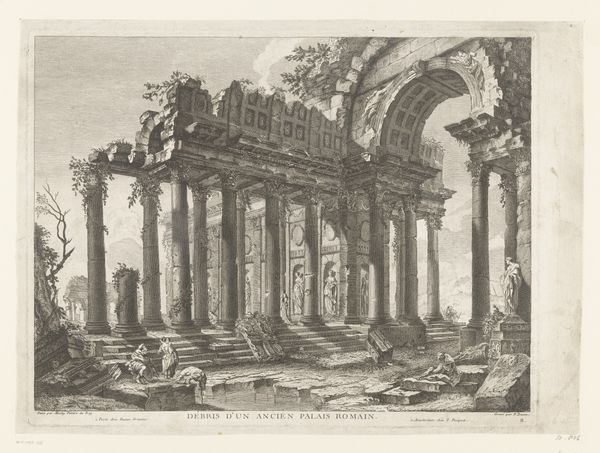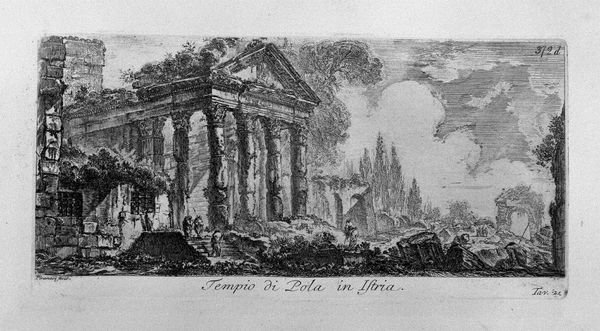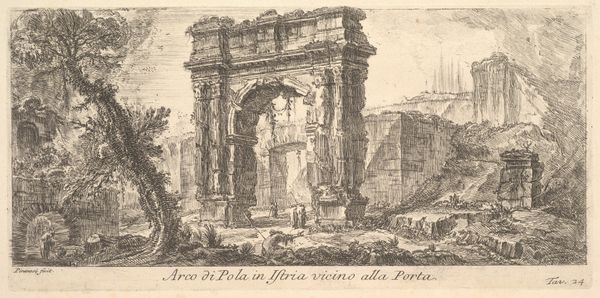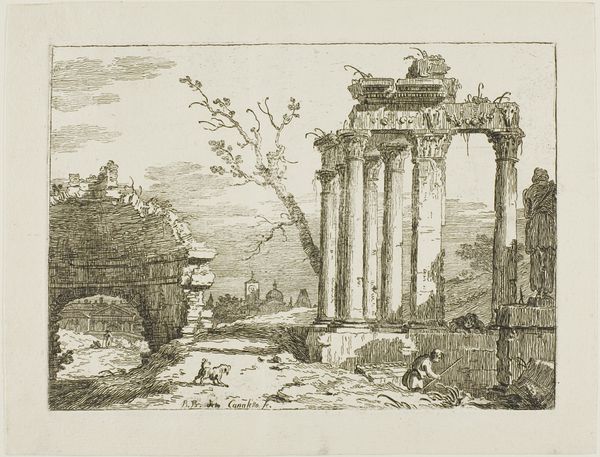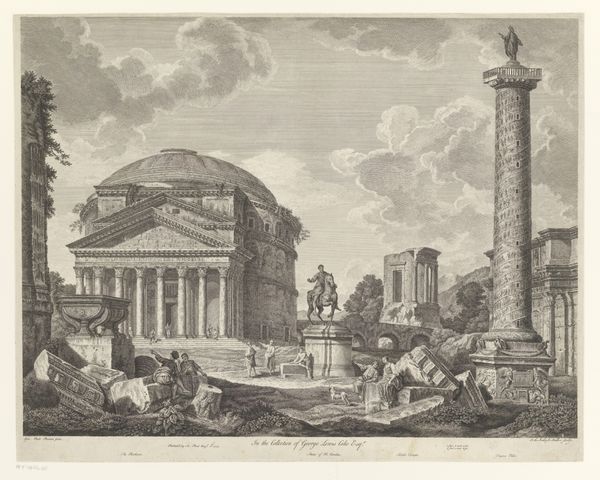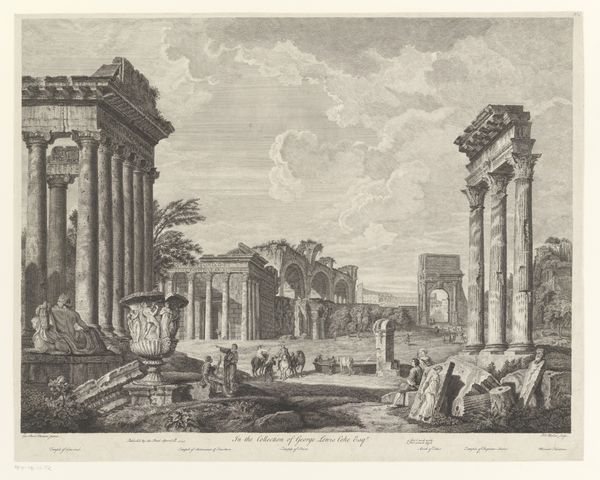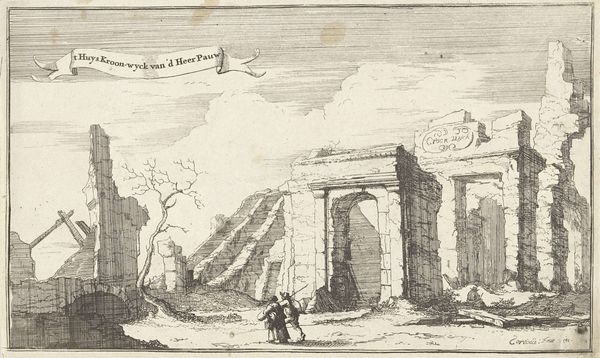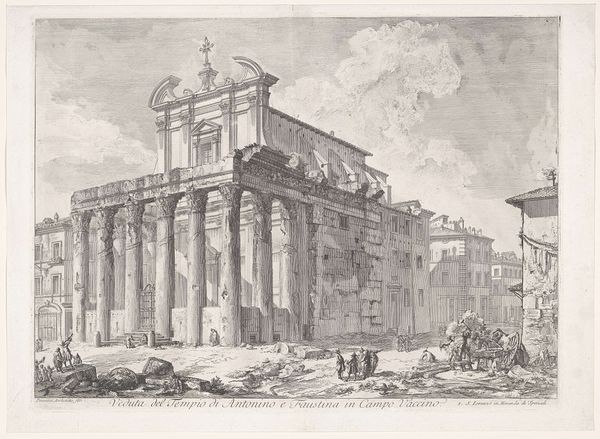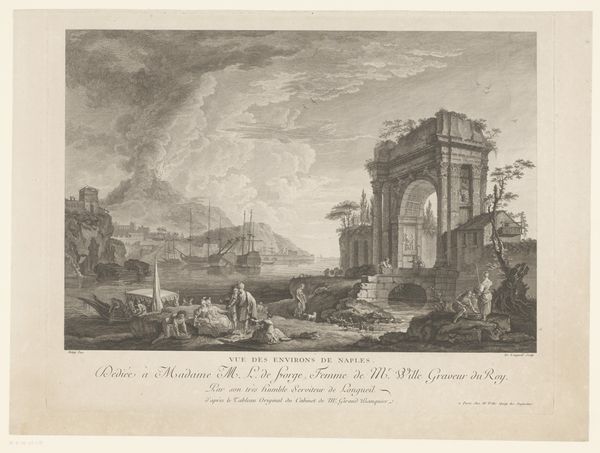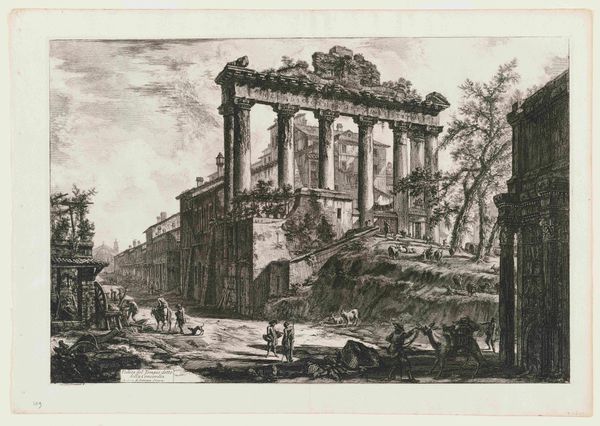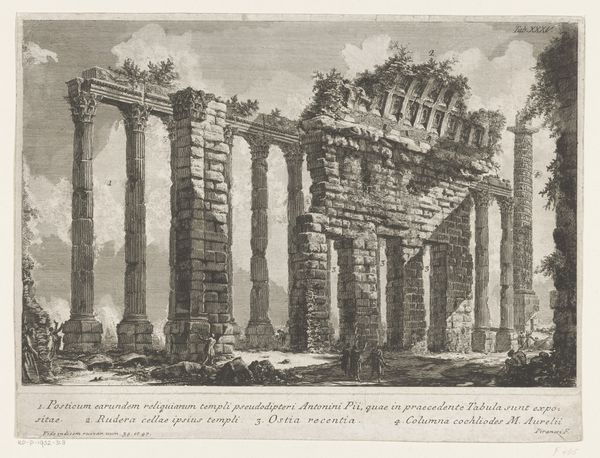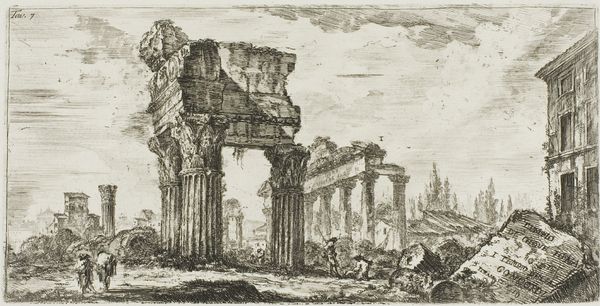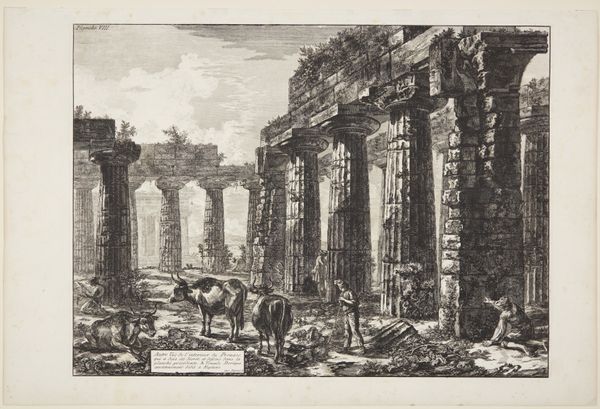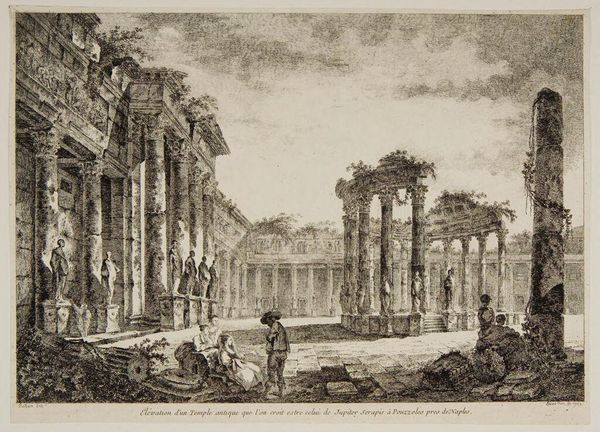
Plate 21: Temple of Pola in Istria (Tempio di Pola in Istria) 1743 - 1753
0:00
0:00
drawing, print, etching, engraving, architecture
#
drawing
#
baroque
#
pen drawing
# print
#
etching
#
landscape
#
romanesque
#
line
#
cityscape
#
engraving
#
architecture
Dimensions: Plate: 4 13/16 × 10 1/8 in. (12.3 × 25.7 cm) Sheet: 12 13/16 × 18 7/8 in. (32.5 × 47.9 cm)
Copyright: Public Domain
Giovanni Battista Piranesi created "Plate 21: Temple of Pola in Istria" using etching, a process that involves using acid to cut into a metal plate. Piranesi lived in a time when Europe was deeply interested in its classical past. Piranesi's work exists in the space between documentation and imagination. It highlights Europe's colonial gaze and the power dynamics inherent in how cultures perceive one another. The artist, in his own words, sought to "introduce a greater magnificence" into his architectural views. What does it mean to enhance ruins? Is it an act of preservation, or does it speak to a desire to dominate and idealize history? Notice the figures that populate the scene. Their presence emphasizes the scale of the temple but also suggests a narrative. They seem to be visitors or perhaps locals, interacting with the ruins in a way that bridges the past and present. Piranesi's etching invites us to reflect on how we engage with history and the stories we tell ourselves about the rise and fall of civilizations. It encourages us to consider whose perspectives are included and excluded in these narratives.
Comments
No comments
Be the first to comment and join the conversation on the ultimate creative platform.
